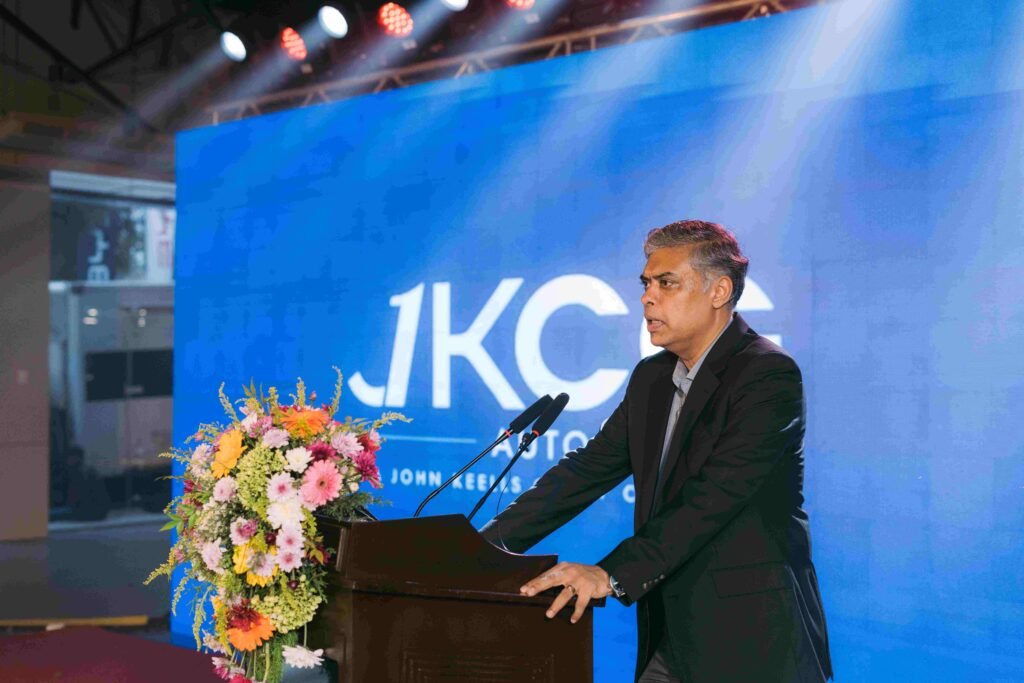Amid Sri Lanka’s journey toward economic recovery, Indian investors and businesses are closely monitoring the emerging opportunities in the local market.

Dr. Naresh Bana, Vice Chairman of the Indo-Sri Lanka Chamber of Commerce and Industry (ISCCI) shared his perspective recently, on current investment trends, bilateral trade, and collaborative ventures between the two neighbours.
Despite strong tourism ties, Indian investment in Sri Lanka’s tourism sector remains cautious. “Indian investors, like their counterparts elsewhere, rely on credible data, projections, and business prudence,” Dr. Bana explains. The country’s credit rating challenges, influenced by banking and financial institutions, often determine the final investment decisions. However, trading relations between the two nations remain robust.
On recent economic reforms, Dr. Bana highlights Sri Lanka’s efforts to diversify investment instruments through municipal bonds, real estate investment trusts (REITs), and SME listings. “These initiatives, if executed effectively, could accelerate economic growth,” he states, adding that Indian businesses are observing these developments while awaiting more consistent, reliable data to guide their decisions.
The ISCCI plays a crucial role in building Indo-Lankan economic ties. “We assist companies in securing industry tie-ups, facilitate bilateral trade, and disseminate policy-related information,” Dr. Bana shares. The Chamber’s initiatives aim to create a supportive environment for Indian investors and help Sri Lankan businesses establish a foothold in India.
The Blue Economy presents significant collaborative potential for India and Sri Lanka. With expansive coastlines, the two nations can leverage marine resources for mutual benefit. Dr. Bana outlines key areas for cooperation, including Marine Domain Awareness (MDA) and maritime security, Fisheries and aquaculture, Offshore energy, including hydrocarbons and wind farms, Maritime trade and connectivity, Tourism and marina development and Research and innovation. He emphasizes, “Collaboration in these areas would unlock economic and ecological benefits for both nations.”
The Adani Group’s investment in Sri Lanka is a significant milestone in Indo-Lankan energy cooperation. “The $442 million wind power project is not just an investment but a torchbearer for Sri Lanka’s renewable energy aspirations,” Dr. Bana notes. He highlights the project’s potential to stimulate ancillary industries, reduce energy dependency, and position Sri Lanka as a net energy exporter.
India remains Sri Lanka’s largest trading partner, with bilateral trade reaching $5 billion in 2023. The relationship is anchored by India’s ‘Neighborhood First’ policy, which includes development aid, credit lines, and infrastructure investments.
Indian businesses have established a robust presence across Sri Lanka’s economy. The Tata Group, Bajaj, and Airtel have significant investments in telecommunications, automotive, and financial services. Indian Oil operates in the energy sector, while ITC Hotels has recently entered the tourism and leisure market. Additionally, the Adani Group has made strategic investments, including the development of the Colombo West International Terminal and the acquisition of Singha Cement. All these ventures underline the strengthening economic ties and mutual business interests between India and Sri Lanka.
Dr. Bana also highlighted the importance of the forthcoming Economic and Technology Cooperation Agreement (ETCA), which is expected to further enhance trade and economic ties.
As Sri Lanka rebuilds, the role of Indian businesses and institutions like ISCCI will be critical in fostering sustainable growth. With shared interests in energy, trade, and the Blue Economy, the Indo-Lankan partnership holds immense promise for regional prosperity.
Dr. Bana’s insights reinforces the potential for deeper collaboration, driven by strategic investments and mutual trust. As he aptly concludes, “The future of Indo-Lankan relations lies in harnessing each other’s strengths for collective growth.”






